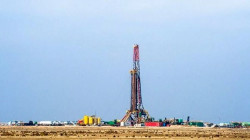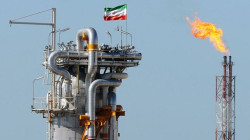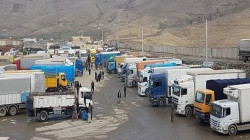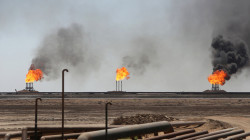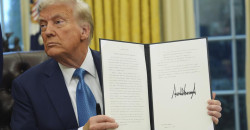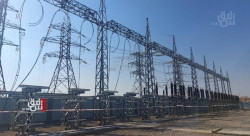Iraq acts urgently to contain “Trump Crisis”
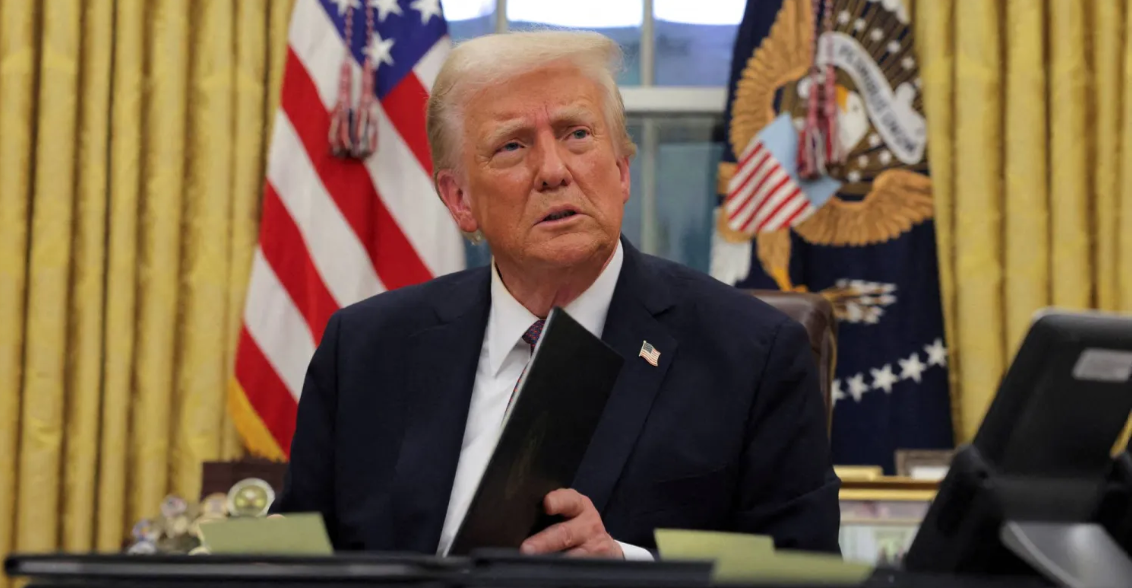
Shafaq News/ In February, US President Donald Trump signed an executive order ending Iraq’s exemption from sanctions related to Iranian gas and electricity imports. The move, part of a broader sanctions package aimed at Iran, targets Iran’s economic activities, including its energy exports.
The executive order stipulates that the US will take immediate steps to prevent Iraq from using its financial system to facilitate Iranian sanctions evasion and to ensure that Gulf countries do not serve as transit points for Iranian energy exports. The memo also outlines measures to reduce Iran’s oil exports to zero, including shipments to China, and to revoke any exemptions that provide financial relief to Iran.
Two members of the Iraqi Parliament’s Oil and Gas Committee announced plans to host the ministers of electricity and oil, along with administrative officials from both ministries, in the coming days.
Bassem Naghimash, a member of the committee, criticized “the lack of diversification in Iraq’s gas sources, despite the ongoing crisis surrounding Iranian gas imports.” He noted that several alternatives have been proposed, including potential deals with Jordan, Turkmenistan, and Qatar, as well as tapping into Iraq’s gas resources. However, Naghimash emphasized that “the country’s capacity to invest in domestic gas solutions has been hindered by a lack of government financial and logistical support.”
Another member of the committee, Kazem Al-Touki, agreed with Naghimash’s assessment, explaining that Qatar had been considered as a potential gas supplier. However, challenges arose due to the absence of gas platforms in Iraq’s ports, leading the country to rely on Turkmenistan, where gas is transported through pipelines passing through Iran. “US sanctions also thwarted this deal, as the intermediary company is Iranian-owned.”
Al-Touki stated that the “real issue lies not only in sanctions against Iran but also in the broader impact on Iraq.” He confirmed that the ministers of electricity and oil would be hosted to discuss potential solutions following Trump’s decision.
He further explained that Iran’s gas supply issues were already evident before the sanctions, primarily due to unpaid debts.
In a prior meeting, Iraq’s electricity minister, Ziad Fadhil had suggested supplying a station in the Kurdistan region with fuel and redistributing the electricity to the rest of the country.
As for Iraq’s next steps, Al-Touki speculated that the government would likely use its “diplomatic influence” to negotiate an exemption from the sanctions, similar to past agreements.
Iraq’s Energy Dependence
Since the 1990s, Iraq has relied on electricity rationing due to low domestic power production, with households depending on private generators to make up the shortfall. To meet its energy needs, Iraq imports between one-third and 40% of its electricity and gas from Iran. However, ongoing US sanctions have made it increasingly difficult for Iraq to settle payments for these imports.
Iraq has also been working on regional electricity interconnection projects to stabilize energy supplies without depending on imported fuel. In August 2023, Iraq signed an agreement with Turkmenistan to import gas as a partial solution to its power generation challenges.
On January 18, 2025, Iraq’s electricity minister confirmed that importing gas from Turkmenistan would reduce the country’s reliance on Iranian gas by 50%. However, he acknowledged that any disruptions to gas imports would directly affect Iraq’s electricity supply. Fadhil also stated that domestic gas development projects would take 3 to 5 years to complete, meaning Iraq would remain dependent on gas imports in the interim.
Potential Impact on Iraq
Saeed Shavardi, an Iranian economic expert, expressed confidence that Iran would continue supplying gas to Iraq despite US sanctions. However, he acknowledged that “the final decision rests with the Iraqi government, which will face significant pressure from the United States.”
He argued that the Iraqi government, led by Prime Minister Mohammed Shia Al-Sudani, would prioritize the needs of its people and likely resist US pressure.
Shavardi also criticized Trump’s decision, calling it “an infringement of international law and an unjust move against the Iraqi people”, emphasizing that the gas trade between Iraq and Iran is essential for electricity generation and warned that cutting off the gas supply could lead to widespread protests in Iraq during the hot summer months when temperatures often exceed 50°C.
Shavardi further argued that US actions have systematically undermined Iraq’s efforts to address its electricity crisis, despite the presence of major American companies in the power sector.
Regarding Iran’s prospects, Shavardi noted that Tehran could find new customers for its gas, given the global demand for energy, especially in Europe, China, India, Pakistan, and Turkiye. He believed that “Iran could mitigate the impact of US sanctions by redirecting its surplus gas to these markets,” thereby nullifying the effect of Trump’s “maximum pressure” campaign.
Economic expert Nabil Al-Marsoumi warned of severe consequences for Iraq’s economy and society if the US sanctions on Iranian gas imports go into effect.
Al-Marsoumi explained that “Iraq’s electrical grid relies on Iranian gas for about 40% of its supply, amounting to approximately 8,000 megawatts of power.” The withdrawal of this gas would create a significant energy shortfall, impacting millions of Iraqis.
Possible Solutions
Al-Marsoumi suggested that short-term solutions could include promoting household solar energy systems, offering bank loans to citizens, deploying floating power stations like Turkiye’s Karadeniz PowerShip, and converting some power plants to use heavy fuel oil or diesel. He also recommended rationing electricity and implementing scheduled outages.
For long-term solutions, Al-Marsoumi pointed to the construction of infrastructure for liquefied natural gas (LNG) imports at the large Al-Faw port and the development of solar energy projects with companies such as TotalEnergies, ACWA Power, and Masdar. He estimated that “these projects could add up to 3,000 megawatts to Iraq’s electricity grid within three years.”
Additionally, Al-Marsoumi highlighted the “importance of Turkmen gas as a viable alternative.” However, transporting this gas through Iran would require a new contract with an intermediary company and several months of logistical arrangements, delaying its potential impact. He noted that “Turkmenistan could supply Iraq with around 4,000 megawatts of electricity, but this would only partially address the country’s needs.”
